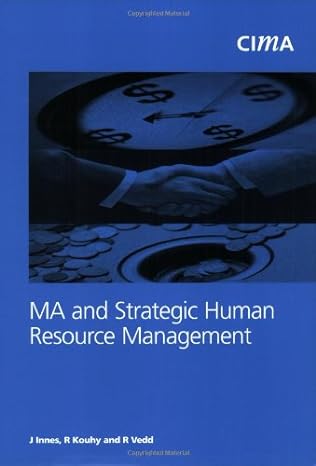Question
Van Rushing Hunting Goods' fiscal year ends on December 31. At the end of the 2016 fiscal year, the company had notes payable of $12
Van Rushing Hunting Goods' fiscal year ends on December 31. At the end of the 2016 fiscal year, the company had notes payable of $12 million due on February 8, 2017. Rushing sold 2 million shares of its $0.25 par, common stock on February 3, 2017, for $9 million. The proceeds from that sale along with $3 million from the maturation of some 3-month CDs were used to pay the notes payable on February 8.
Through his attorney, one of Rushing's construction workers notified management on January 5, 2017, that he planned to sue the company for $1 million related to a work-site injury on December 20, 2016. As of December 31, 2016, management had been unaware of the injury, but reached an agreement on February 23, 2017, to settle the matter by paying the employee's medical bills of $75,000.
Rushing's financial statements were finalized on March 3, 2017.
REQUIRED:
1) What amount(s) if any, related to the situations described should Rushing report among current liabilities in its balance sheet at December 31, 2016? Why?
2) What amount(s) if any, related to the situations described should Rushing report among long-term liabilities in its balance sheet at December 31, 2016? Why?
3) How would your answers to requirements 1 and 2 differ if the settlement agreement had occurred on March 15, 2017, instead? Why?
4) How would your answers to requirements 1 and 2 differ if the work-site injury had occured on January 3, 2017, instead? Why?
Step by Step Solution
There are 3 Steps involved in it
Step: 1

Get Instant Access to Expert-Tailored Solutions
See step-by-step solutions with expert insights and AI powered tools for academic success
Step: 2

Step: 3

Ace Your Homework with AI
Get the answers you need in no time with our AI-driven, step-by-step assistance
Get Started


